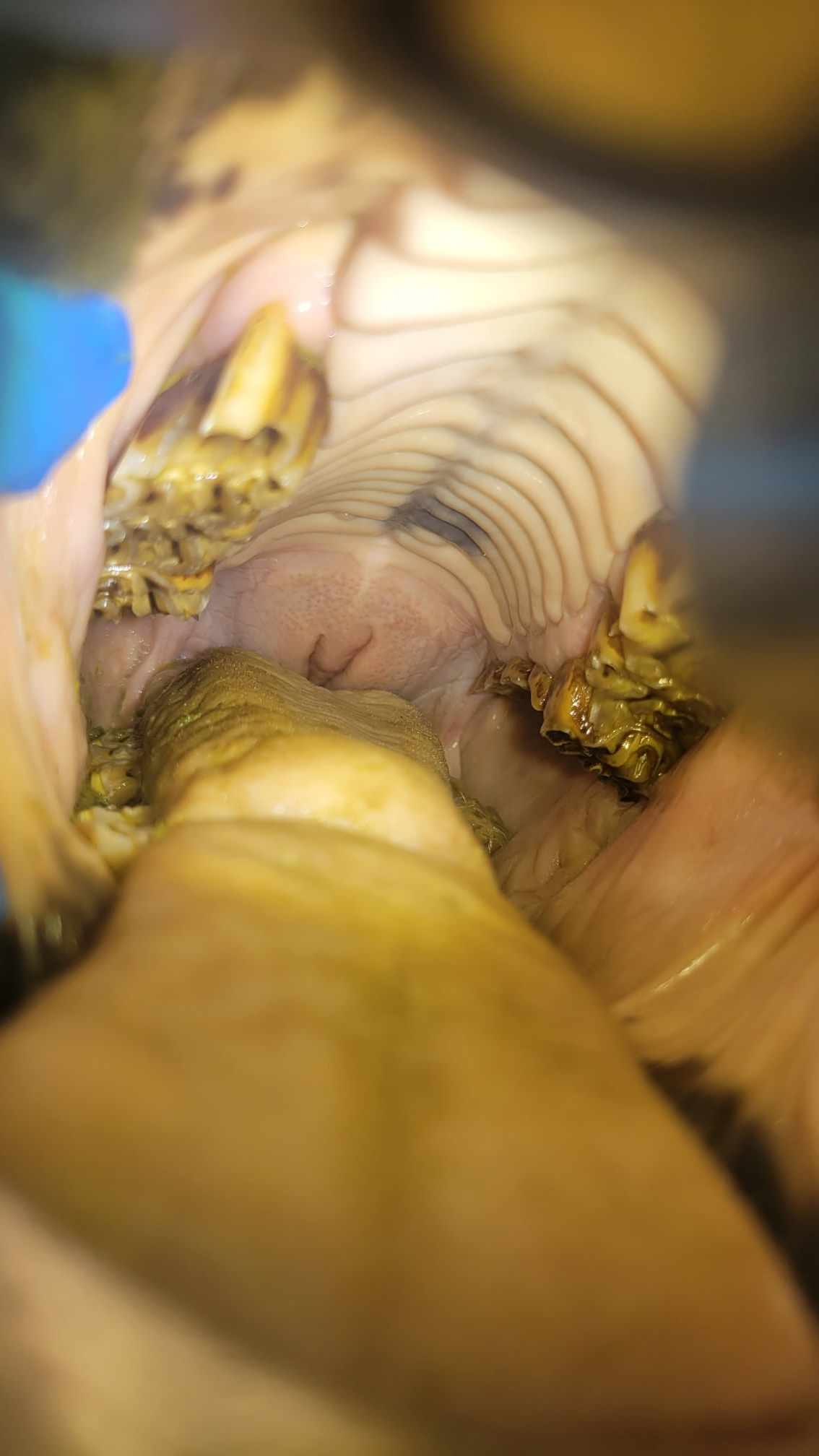While all horses should have their teeth maintained by a qualified veterinarian, it becomes particularly important as they age. Horse’s teeth continue to erupt throughout their lives, as they are ground down by chewing their food. Since their upper jaw is slightly wider than their lower jaw, they wind up with sharp points on the outside of their upper molars, and inside of their lower molars. Routine “floating” of the teeth, by filing off the sharp points, keeps their mouth comfortable, and prevents painful ulceration of their cheeks and tongue from rubbing on the sharp points.
But horses do have a finite amount of tooth, and it isn’t uncommon for their teeth to wear out before the rest of the horse. If a tooth is lost, or “expires” and runs out of tooth to continue erupting, then the opposing tooth can overgrow, causing a “step” which can bind and cause issues with chewing, or even impact the opposite jaw if left unchecked. Minor misalignments can become major, with large sharp points causing pain. Diastemas, or spaces between teeth, can result in feed packing and further damage to teeth. EOTRH is a painful degenerative dental condition, which is not uncommon in elderly horses.
All that is to say, routine dental care can become much less routine as your horse ages, and staying on top of any issues on a regular basis will help your horse continue to have some teeth to work with for as long as possible.
My senior horses, depending on what is going on with their teeth, may need to be seen as often as every four months (if there is an issue they’re working to resolve, like an overgrown tooth), and six to twelve months is a common time frame.
Signs that your senior horse may need dental care might include weight loss, difficulty chewing, “quidding” (spitting out cuds of chewed hay), packing feed in their cheeks so they look like a chipmunk, or just because they haven’t had their mouths looked at by a vet recently.
I know the old saying is “no foot, no horse” but I think someone should be developing denture technology for elderly horses, because it really does seem to be the part the gives up on them first. Luckily, we do have feeding options to help them continue to thrive even when they don’t have much left to chew with – click the link below to read about feeding considerations!
